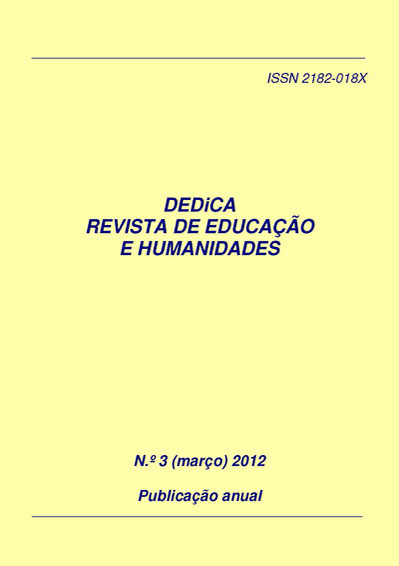Identity and difference in the folklore of the Iberian Peninsula. Recovery of the traditional folklore heritage
DOI:
https://doi.org/10.30827/dreh.v0i3.7090Keywords:
recovery of traditional heritage, folklore, cultural manifestation, cultural promotion, cultural policies, strategies of development, full developmentAbstract
On the basis of the racial and cultural mix that characterises the inhabitants of the Iberian Peninsula, a process of elaboration and development of their folklore has taken place. This process is also marked by the African contribution, clearly seen in rhythms, melodies and even some harmonies. The ways in which folklore has spread have been diverse in nature. One way is through religious influence, another is through the movement of temporary workers who travel from some areas to others to find seasonal work in agriculture, or more recently in the service sector, for example, in hotels.
Today’s thinking about development requires a full perspective, in which culture brings a fundamental background for processes of change and progress.
Cultural policies appear as key elements in strategies of full development, and require articulation with other social and economic policies. Is this regard, in the formulation of cultural policies, optimization of the processes of information, documentation, and research should be enhanced. This arises from the need and constant demand of having at our disposal data which will allow a better knowledge of the cultural reality of the countries where we are going to develop our work in order to act more appropriately in the definition and implementation of these policies.
We must foster the empowerment of the human resources that will put into practice the different strategies aimed at obtaining this objective, enabling the acquisition of greater skills for the design, management and participation in cultural processes, and from this work we intend to respond to this need and enhance these aspects.
recovery of traditional heritage; folklore; cultural manifestation; cultural promotion; cultural policies; strategies of development; full development.
Downloads
References
Aguilar Criado, E. (Coord.) (1999). Patrimonio Etnológico. Nuevas perspectivas de estudio. Granada: Comares – Instituto Andaluz del Patrimonio Histórico.
Caro Baroja, J. (1966). Romances de ciego. Madrid: Taurus.
Caro Baroja, J. (1988). Ensayo sobre la literatura de cordel. Barcelona: Círculo de Lectores.
Machado y Álvarez, A. (1986). El folklore andaluz. Sevilla: Biblioteca de Cultura Andaluza.
Menéndez Pidal, R. (1973). Romancero Hispánico, Vol. I, Cap. II. Madrid: Espasa Calpe.
Ministerio de Cultura (1991). Equipamientos, Prácticas y Consumos Culturales de los españoles. Madrid: Secretaría General Técnica.
Ministerio de Cultura (1993). Acción Internacional. Madrid: Secretaría General Técnica.
Ministerio de Cultura (1993). El dominio del tiempo. Madrid: Biblioteca Nacional.
Ministerio de Cultura (1993). Fundaciones Culturales Privadas. Registro y protectorado del Ministerio de Cultura. Registros y Protectorados de las Comunidades Autónomas. Madrid: Secretaría General Técnica.
Ministerio de Cultura (1993). La Cultura en España y su Integración en Europa. Madrid: Secretaría General Técnica.
Murcia, M. (1974). Formación Musical (Segundo Curso). Madrid: Gráficas Agenjo.
Ortiz Molina, Mª A. (Coord.) (2000). Músicas para trabajar y jugar en Educación Primaria. Granada: Grupo Editorial Universitario.
Ortiz Molina, Mª A.; Altozano Foradada, J. (2002). Canciones con juegos. Juegos con canciones. Granada: Grupo Editorial Universitario.
Ortiz Molina, Mª A. (2008). Un repaso al Carnaval de Granada y Provincia. En Mª A. Ortiz Molina (Coord.), Música. Arte. Diálogo. Civilización, 193-236. Coimbra: Fernando Ramos (Editor).
Real Decreto Legislativo 1/1996, de 12 de abril, por el que se aprueba el Texto Refundido de la Ley de Propiedad Intelectual.
Tejerizo Robles, G. (1983). Villancicos de la Alpujarra y el Valle de Lecrín. Granada: Caja Provincial de Ahorros.
Torner, E. M. (1966). Lírica hispánica. Relaciones entre lo popular y lo culto. Madrid: Castalia.
VV. AA. (2002). Iberoamérica 2002. Diagnóstico y propuestas para el desarrollo cultural. México: OEI – Santillana.
Zapata, O. (1990). El aprendizaje por el juego en la escuela primaria. México: Pax.
Portales Informáticos
http://www.aprendemas.com//curso/cursos_de_guia_turistico.html
Consultado en 06/06/2011
http://www.aragob.es/edycul/patrimo/etno/etn_presentacion.html
Consultado en 23/02/2005
Consultado en 31/05/2011
http://www.culture02.com//html.html, Consultado en 06/06/2011
http://www.iberpymeonline.org (Buenas prácticas de gestión de Turismo Social: Experiencias Iberoamericanas), Consultado en 21/10/2009
http://www.segib.org/documentos/esp/Manual%20de%20BBPP%20Turismo%20Social.pdf Consultado en 15/12/2009
http://www. guiasaragon.iespana.es, Consultado en 09/05/2009
http://www.mcu.es/patrimonio/MC/IPHE/Intervenciones/PatrimonioArquitectonico/index.html Consultado en 09/07/2009
http://www.oei.es/caeu.php (Curso sobre gestión para la cooperación al desarrollo) Consultado en 03/09/2008
http://portal.iteso.mx/portal/page/portal/Dependencias/Rectoria/Dependencias/Direccion_de_Integracion_Comunitaria/Dependencias/Centro_de_promocion_cultural/gestion Consultado en 11/02/2009
http://www.madrid.org/cs/Satellite?pagename=ComunidadMadrid/Home (Promoción del empleo autónomo) Consultado en 30/03/2009
http://www.us.es/cultura/index.html Consultado en 08/02/2010
http://www.jaenonline.com/web/servicios.asp
(Recursos socioculturales) Consultado en 25/09/2010
http://www.cultura.burgos.es/noticias (Conservación del Patrimonio Urbano Rural), Consultado en 19/01/2008
http://www.zaragoza.es/ciudad/cultura/observatorio/enlaces/organismos_enlaces.htm Consultado en 19/01/2008
http://www.galeon.hispavista.com/cultura/ Consultado en 15/03/2006
http://buscador.rincondelvago.com/patrimonio+folklorico
(Recursos territoriales y turísticos, Folklores de Europa – España, Animación turística, Aragón) Consultado en 28/04/2005
http://www.gh.profes.net (Informe sobre conservación del patrimonio) Consultado en 12/10/2005
http://www.biblio.uah.es/uhtbin/cgisirsi/LTr/C-EXPERIM/0/1/315/X
(Patrimonio Cultural) Consultado en 12/10/2005
http://cederul.unizar.es/revista/num01/inicio.htm Consultado en 05/11/2007












